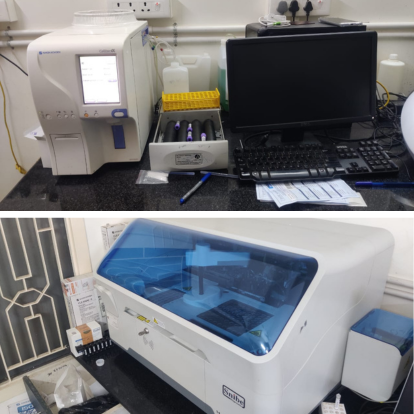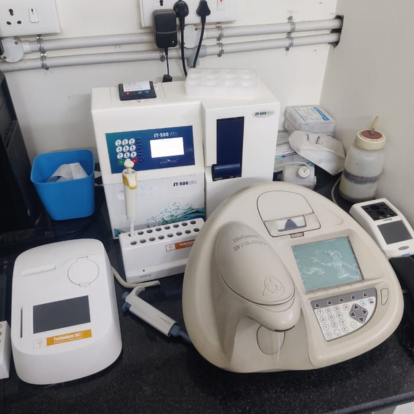Pathology Laboratory
Pathology Laboratory is a medical specialty focused on the study and diagnosis of disease through the examination of organs, tissues, bodily fluids, and whole bodies (autopsies). It plays a vital role in identifying the cause and nature of diseases.
Through laboratory tests and microscopic evaluation, pathologists help detect infections, cancers, and chronic diseases. Pathology Laboratory supports clinical decisions and ensures accurate treatment plans based on detailed diagnostics.
Benefits for Patients
- Accurate disease diagnosis
- Early detection of serious health conditions
- Guidance for effective treatment
- Essential support for clinical decision-making
- Reduces unnecessary or incorrect treatments


Frequently Asked Questions
Learn more about pathology and its importance in disease diagnosis and treatment.
Pathology Laboratory is the study of disease through the analysis of body tissues and fluids. It helps diagnose a variety of medical conditions and supports the clinical team in deciding on effective treatment.
Pathology Laboratory tests involve collecting samples like blood, urine, or tissues. These are then analyzed in a lab using microscopes, staining techniques, and molecular tests to detect diseases.
Pathology Laboratory provides critical information that guides diagnosis and treatment. It helps ensure accurate medical decisions, early disease detection, and effective patient care management.
